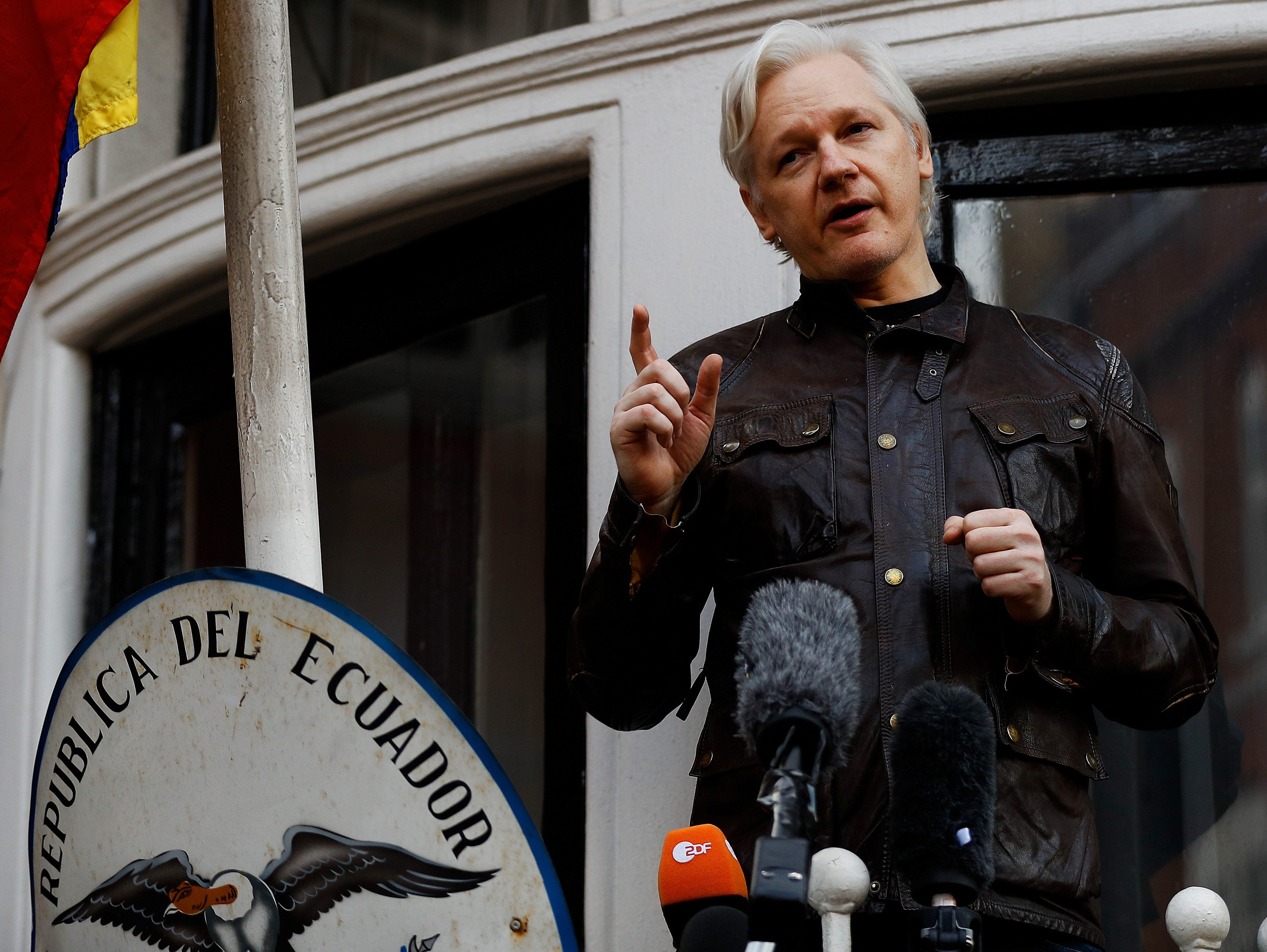
Wikileaks founder Julian Assange has begun legal action against Ecuador’s government, accusing it of “violating his fundamental rights and freedoms” after cutting off his communications with the outside world.
Assange has been holed up in the Ecuadorian embassy in London since being granted political asylum in 2012. He fears extradition to the US to face charges of stealing classified information if he ever leaves.
Assange stepped down as editor of the whistleblowing website last month, taking up a role as its publisher, after almost seven months of being denied access to the internet and other forms of communications.
Wikileaks has said this included refusing to allow journalists and human rights organisations to see him, and installing three signal jammers in the embassy to block his phone calls and internet access.
His communications were partially restored last week following a meeting between two senior UN officials and Ecuador President Lenin Moreno.
Wikileaks’ new editor-in-chief, Kristinn Hrafnsson, said in a statement: “It is positive that through UN intervention, Ecuador has partly ended the isolation of Assange although it is of grave concern that his freedom to express his opinions is still limited.
“The UN has already declared Mr Assange a victim of arbitrary detention. This unacceptable situation must end.
“The UK government must abide by the UN’s ruling and guarantee that he can leave the Ecuadorian embassy without the threat of extradition to the United States.”
Wikileaks general counsel Baltasar Garzon travelled to Ecuador and launched a case against the government on Friday.
The group said on Twitter the case came in response to Assange’s “continued gagging” and “duress”.
His lawyers are also challenging the legality of the Ecuadorian government’s “special protocol” reported last week, which they said makes Assange’s political asylum “contingent on censoring his freedom of opinion, speech and association”.
They said it requires journalists, lawyers and anyone else who wants to visit Assange to disclose private or political details such as their social media usernames and the serial numbers of their phones and tablets.
The protocol would then allow the Ecuadorian government to share this information “with other agencies”, the lawyers said.
Last week US congressmen Eliot Engel and Ileana Ros-Lehtinen wrote to Moreno to say that despite “significant progress” made since he took office last year, the status of Assange must be resolved “in order to advance” on matters including economic cooperation.
“It is clear that Mr Assange remains a dangerous criminal and a threat to global security, and he should be brought to justice,” they wrote.
“…It will be difficult for the United States to advance our bilateral relationship until Mr Assange is handed over to the proper authorities.”
Picture: Reuters/Peter Nicholls
Email pged@pressgazette.co.uk to point out mistakes, provide story tips or send in a letter for publication on our "Letters Page" blog
